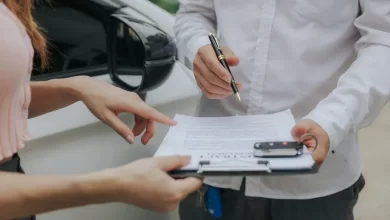
What to Expect From Conveyancing Solicitors
A conveyancing solicitor is essential when you are buying a property. The transaction is a complex one and a good solicitor will help protect your interests. To ensure you get the best deal, there are many searches that must be done. You should know how much these searches will cost and what to expect from the process.
Working with a conveyancing solicitor can teach you valuable lessons
Lawyers can have a savior complex or conflict of interest. This is not a problem that lawyers are immune to. Having a client who’s unhappy with the outcome of a legal matter can do more harm than good for a lawyer’s reputation. Lawyers are taught to avoid these situations from the get-go. If you are unhappy with the service received, you can tell the lawyer.
When purchasing a property, there are many searches that must be done. These searches include local authority searches. They provide valuable information about the property and are essential to the conveyancing process. A delay in local authority searches has led some lawyers to order personal searches instead. These are carried out by a third party who visits the local authority and records information.
A property search is essential in property conveyancing, regardless of whether the buyer is purchasing the property cash or with a mortgage. These searches are vital for obtaining essential information about the property, including flood information and building regulations documentation. The results of these searches are important for the buyer to know if the property is safe to buy.
A conveyancing solicitor will advise you on the various searches available to you. Depending on where you are purchasing, you may need additional searches. You may need to do additional searches if you are buying a property that was once home to tin or coal mines. Although these searches are not compulsory, they can help you avoid costly issues later on.
Steps to hiring a conveyancing solicitor
Conveyancing is the legal process of transferring ownership of a property. When you make an offer on property, a melbourne conveyancing lawyer is hired. They will work with the seller’s solicitor to obtain a draft contract and other documents. Once they have the documents, they will go through them and determine who is the owner of the property.
Before you hire a conveyancing solicitor, you need to set a budget. To get an estimate of fees, you can visit the firm’s website. Then, call them up to ask a few questions. If possible, you should meet them in person. This will enable you to ask them questions and make sure they understand the conveyancing process.
A conveyancing solicitor can help you avoid stressful transactions and save you time and money. It can be difficult to purchase a property and can take longer than you expect. If you don’t have enough knowledge, it can be stressful. A conveyancing solicitor will be able to identify any issues and make the process as seamless as possible.
A number of searches can be ordered by the conveyancing solicitor on your property. These searches include local authority searches and drainage searches. They also include environmental searches and locality searches. These searches will also include checking for potential flooding or future building work. These searches are essential because they can prevent problems or change your mind about a particular property.
Costs involved in hiring a conveyancing solicitor
When deciding whether to hire a conveyancing solicitor to assist with the purchase or sale of your property, it is important to understand all the costs involved. A solicitor will charge a fee and third-party fees. While third-party costs are generally set by statute, they can vary from solicitor to solicitor. Conveyancing solicitors must cover additional costs such as stamp duty, anti-money laundering checks and searches at local authorities.
If you are buying a new property or are selling your existing property, a conveyancing solicitor is essential. A solicitor will deal with all the legalities associated with buying and selling a property, and will keep you informed and up-to-date throughout the process. A good conveyancer will also be willing to answer questions about the property purchase or sale. Using a conveyancer will also ensure that you do not make any mistakes that could cost you money or your sale.
Some solicitors offer a ‘no sale, no fee’ package, but make sure to read the small print. A good conveyancer will only charge reasonable additional fees. Avoid the sneaky firms that list a long list of ‘potential’ charges. A conveyancer might charge extra for specialist searches that are likely to be required. They may also insist on indemnity coverage, which could be worth the cost.
Typically, a conveyancing solicitor will charge between PS1,000 and PS2,000 for a standard service. Even if you are only selling your property, you will likely require the services of a conveyancing solicitor for a remortgage. The fees associated with such a transaction are usually covered by the new mortgage lender.
Conveyancing solicitors conduct searches
Conveyancing solicitors carry out a range of searches as part of the conveyancing process. These searches are used to identify potential problems with a property. These searches are essential to closing a conveyancing deal. These searches include local authority searches, environmental searches, water and drainage searches and title searches. A conveyancer will advise you on which searches are most appropriate for your property. These searches are not mandatory, but they can provide you with vital information about your new property.
A property search can reveal whether a property has been subject to a bankruptcy, and if it has any outstanding debt. You can also use these searches to determine if the property is in a conservation area or if it is near a new road that could affect its use.
Although a property search is not required, it is highly recommended for mortgage-minded buyers. Although not a legal requirement, it is useful to know about the property you’re buying before exchange of contracts. A search carried out in the local area can identify any risks within 500 metres of the property, and can alert you to further searches that may be needed.
Conveyancing searches can help you avoid potential problems and protect you from being late discovered. Solicitors who specialize in conveyancing will conduct a variety of searches, including commons, environmental, and mining searches, to ensure that you are buying a safe and sound property.
Conveyancing solicitors can also run a search with the local authority to determine if the property is located in a conservation area. It might be difficult to extend or build on the property if it is in a conservation area. In addition, the search will reveal any issues with the water or sewerage that could affect your new home.
Disclosure obligations of a conveyancing solicitor
A solicitor has a legal duty to keep the affairs of clients confidential. They may only disclose information if it is required by law or if the client consents to it. This will vary depending on the case and the issues being raised. The solicitor must inform the client about any information required and let them understand if it will be provided to a LeO.
A seller’s property disclosure form is included in most residential property sale contracts. If the solicitor fails to provide this information, it could constitute a breach of contract. If the seller fails to disclose all information, the buyer can file a claim for misrepresentation and non-disclosure.
A real estate professional must also make sure to disclose any known defects or hazards affecting the property. This information may be in the form of a disclosure statement, or it could be a written document detailing the conditions of the property. This information is critical for the buyer as it can affect their decision to buy the property.
Another aspect of a conveyancing lawyer’s disclosure obligations is to disclose information about nearby nuisances. A nuisance is an external source that causes disturbance to a property. Different states have different requirements for the disclosure of nuisances. For example, in some states, a solicitor must disclose any nearby commercial or industrial properties, or airports or shooting ranges.





